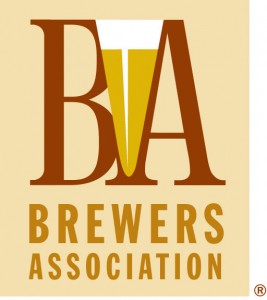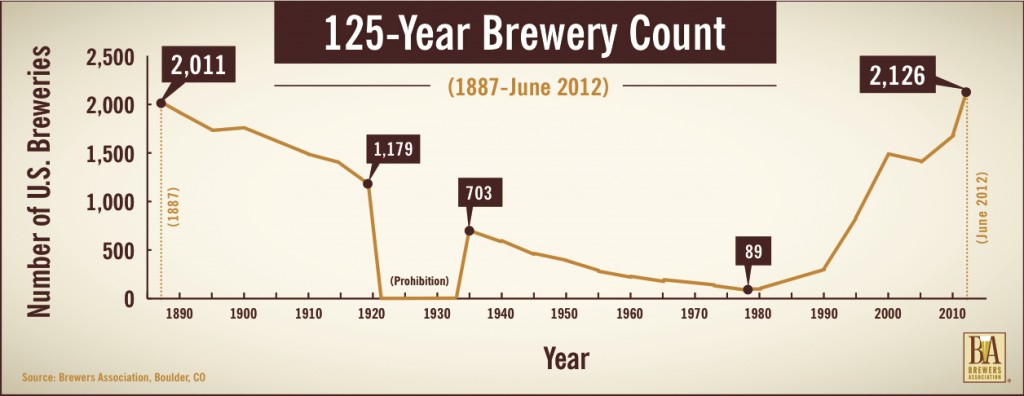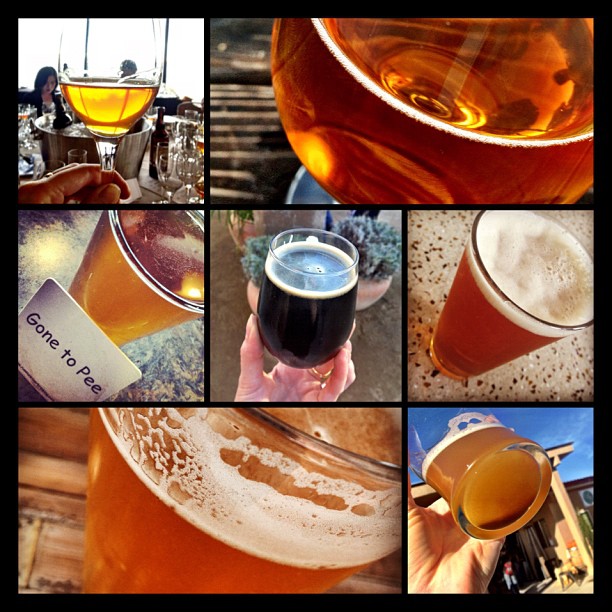The Brewers Association, the not-for-profit trade association dedicated to small and independentAmerican craft brewers, issued the following statement regarding the increase in production and promotion of craft-like beers by large, non-craft breweries:
An American craft brewer is defined as small and independent. Their annual production is 6 million barrels of beer or less and no more than 25 percent of the craft brewery is owned or controlled by an alcoholic beverage industry member who is not themselves a craft brewer.
The community of small and independent craft brewers has grown as beer enthusiasts embrace new, diverse beers brewed by their neighbors and friends who are invested in their local communities. Beer drinkers are voting with their palates and dollars to support these entrepreneurs and their small and independent businesses.
In 2011, small and independent craft brewers saw their industry grow 13 percent by volume; in the first half of 2012, volume grew by an additional 12 percent. Meanwhile, the overall beer industry was down 1.3 percent by volume and domestic non-craft was down 5 million barrels in 2011.
Witnessing both the tremendous success and growth of craft brewers and the fact that many beer lovers are turning away from mass-produced light lagers, the large brewers have been seeking entry into the craft beer marketplace. Many started producing their own craft-imitating beers, while some purchased (or are attempting to purchase) large or full stakes in small and independent breweries.
While this is certainly a nod to the innovation and ingenuity of today’s small and independent brewers, it’s important to remember that if a large brewer has a controlling share of a smaller producing brewery, the brewer is, by definition, not craft.
However, many non-standard, non-light “crafty” beers found in the marketplace today are not labeled as products of large breweries. So when someone is drinking a Blue Moon Belgian Wheat Beer, they often believe that it’s from a craft brewer, since there is no clear indication that it’s made by SABMiller. The same goes for Shock Top, a brand that is 100 percent owned by Anheuser-Bush InBev, and several others that are owned by a multinational brewing and beverage company.
The large, multinational brewers appear to be deliberately attempting to blur the lines between their crafty, craft-like beers and true craft beers from today’s small and independent brewers. We call for transparency in brand ownership and for information to be clearly presented in a way that allows beer drinkers to make an informed choice about who brewed the beer they are drinking.
And for those passionate beer lovers out there, we ask that you take the time to familiarize yourself with who is brewing the beer you are drinking. Is it a product of a small and independent brewer? Or is it from a crafty large brewer, seeking to capitalize on the mounting success of small and independent craft brewers?
A full list of U.S. breweries is available on BrewersAssociation.org. The Brewers Association list of domestic non-craft breweries is available for download.
###
 The Brewers Association is the not-for-profit trade association dedicated to small and independent American brewers, their craft beers and the community of brewing enthusiasts. The Brewers Association (BA) represents more than 70 percent of the brewing industry, and its members make more than 99 percent of the beer brewed in the U.S.
The Brewers Association is the not-for-profit trade association dedicated to small and independent American brewers, their craft beers and the community of brewing enthusiasts. The Brewers Association (BA) represents more than 70 percent of the brewing industry, and its members make more than 99 percent of the beer brewed in the U.S.
The BA organizes events including the World Beer Cup®, Great American Beer Festival®, Craft Brewers Conference and BrewExpo America®, SAVOR℠: An American Craft Beer & Food Experience and American Craft Beer Week. The BA publishes The New Brewer magazine and its Brewers Publications division is the largest publisher of contemporary and relevant brewing literature for today’s craft brewers and homebrewers.
Beer lovers are invited to learn more about the dynamic world of craft beer at CraftBeer.com and about homebrewing via the BA’s American Homebrewers Association. Follow us on Twitter.


I think it is fair to ask for breweries and beers to inform the masses who really owns the product. Even Widmer under the umbrella of Craft Beer Alliance should tell the world straight up that their beer is 42% (I believe) owned by A-B InBev. That being said, just because a brewery is owned by a major powerhouse purveyor of macro, doesn't mean that the final presentation itself can not be classified as "craft." The BA has a LOT of power in determining what is and is not "craft beer." And though they are a powerful resource and guideline creator of what is and isn't craft, they are not, at least for me, the word of God on the subject. Cheers!
I believe the correct number with respect to the CBA is around 33%. As far as what constitutes a "craft" brewery, we both know the BA has routinely adjusted the numbers upward to accommodate some of the larger regional craft breweries.
Pete I thought you were a Bud Platinum guy and that Beervana Buzz was founded around your adoration of this divine lager beer. No? Well, you can always upgrade to Samuel Adams (defined by BA as a "craft brewery") and their Sam Adams Light. Cheers!
I was thinking of upgrading. Maybe something from Pyramid. Yeah, that's the ticket. Ummm, someone recently told me the BA gets the bulk of its revenue from the large craft brewers…like Sam. Where do they draw the line? Changing the rules all the time is no way to roll. Oh well…back to my Bud Platinum.
Have tried Jack Daniels beer yet?